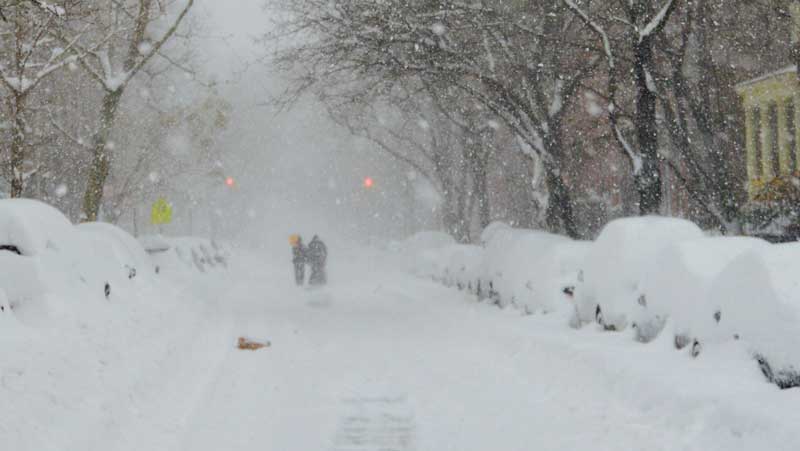Snow Days Ahead!
Winter weather is likely headed our way and early preparation and communication can go a long way to forestall the secondary storm of unmatched expectations and recriminations.
Are you prepared for bad weather as an employer?
The best plan for your business is to create a foul weather plan beforehand, make sure it’s fair and legal, and ensure your employees know what it says. This simple action will go a long way to minimising stress for both you and your staff when the streets are impassable.
Do I have to pay an employee who does not show up or turns up late due to bad weather?
That depends on your employee contract and employee handbook. If neither have provisions for inclement weather then you are not normally obligated to pay employees for time off during foul weather. UNLESS you have previously done so – enough so an implied agreement is created. You may even have created an implied agreement if the employee contract or handbook says otherwise.
Can I deduct annual leave for employees who miss work for snow?
Maybe. Maybe not.
You are required to give twice as much notice as the anticipated leave. Which means you can’t decide today that tomorrow will be an annual leave day. One day of annual leave requires 2 days advance notice. And the weather reports are seldom so reliable.
The exception to the 2X notice rule is for employees who earn more than the statutory minimum leave.

What about employees who take time off when their child’s school closes for snow?
Parents are entitled to a ‘reasonable’ time off to make arrangements for child care in an emergency and a weather-related school closure qualifies as an emergency. What qualifies as reasonable is not set in stone.
Rather than set a rigid plan for this consider alternatives such as working from home if the employee could reasonably do so. Or allowing them to make up the time in the near future. Remember, the parent is already under stress. Do you really need to add to that?
Here are some ideas for employers to consider before inclement weather strikes.
Consider allowing home-working if your employees can reasonably do so. The job still gets done, your business suffers the least slowdown, employees still get paid and no one is in danger trying to get to work.
Consider adjusting working hours. If the brunt of the weather is cleared up so employees can arrive later consider adjusting the work day. Employees might work late or make up time during their lunch hour (as long as you comply with Working Time Regulations). Again, your business doesn’t suffer and employees still get paid. Win-win, right?
Consider safety. If the roads are really impassable do you really want employees lives in danger getting to work? While your commute might have been a breeze, employees in more remote areas may have very different road or public transport conditions. An injured employee may be out of work much longer than the snow emergency.
Be reasonable and fair. If an employee lives in a particularly remote area – or suffers from arthritis – consider allowing them to work from home for the duration of the emergency. But be sure to apply this consideration fairly and equitably to all employees.
The best plan is to be prepared. Make a plan – create policies that clearly define your foul weather procedures – and be sure everyone knows about them ahead of time.
Are you prepared for bad weather as an employee?
Your best plan as an employee is to consider what you might do when foul weather is upon us. How will you get to work if your street is not ploughed? What is your backup plan for child care? Is it possible to work from home? And don’t wait until the weather forecast is all doom and gloom.
Do I get paid if I can’t get to work because of bad weather?
The short answer is ‘no’. Even in a blizzard, you have the responsibility to get to work unless your contract provides for transportation to and from work. If your contract has no such clause and you don’t make it to work your employer has no obligation to pay you.
Some employers may allow you to make up the time within a reasonable period or take the time as paid annual leave.
Many employers include guidance in an adverse weather policy. Check with your employer is such a policy exists.
Do I get paid if my employer closes for the day?
If your job allows you to work from home you will be paid normally.
If your employer closes shop, that is considered a lay-off period. Your employer should pay normal wages during this closure unless your contract states otherwise or you agree to unpaid leave.
Even if your contract allows for an unpaid lay-off, you may be entitled to the statutory guarantee payment (up to £26.00) for any day you can not work (restrictions apply). You must have worked for one continuous month and be available should the employer request. If you refuse alternative work your employer is no longer obligated to pay you.
If I slip on snow or ice at work is my employer liable?
Your employer is responsible for providing a reasonably safe workplace. This includes snow and ice removal. Gritting, snow removal and closure of unsafe areas can help minimise your risk at work. Pay attention to the conditions of the area and heed any warning signs.
In the event you are injured at work and choose to make a personal injury claim the court will consider the circumstances and the steps your employer took to mitigate your exposure.
Is there a minimum workplace temperature?
Regulation 7 of the Workplace (Health, Safety and Welfare) Regulations 1992 calls for ‘reasonable’ temperatures inside all building during work hours. The definition of ‘reasonable’ (remember this is only for indoor workers) is clarified by the Health and Safety Executive as 16ºC for desk/stationary workers such as an office and 13ºC for jobs requiring physical activity.
 Can I take a day off if my child’s school is closed?
Can I take a day off if my child’s school is closed?
You are entitled to time off to make other arrangements if your child’s school is closed (an emergency). This right does not include being paid. And the time allowed for ‘making other arrangements’ is fairly broad.
The best plan is to prepare for such circumstances ahead of time. Unless you are very lucky the chances of weather impacting your child’s school are pretty high. Make a plan and review it often to minimise the effect of a school closure.
What’s the best bad weather plan?
The best bad weather plan is one that is prepared in advance, makes the employer’s policies known ahead of time, takes employee health and safety into consideration, complies with law, and is known to everyone affected by the plan.
If you are an employer be sure you have a plan. If you are an employee ask about your employer’s adverse weather plan and make your own plans for inclement weather.
Should you have any questions feel free to reach out to our help line. DLP advisors are available to answer any questions you may have at 0330 400 4495.
Additional Reading
Annual Leave Crisis
Almost a third or UK workers cancelled annual leave in 2020 leaving employers…
Creepy Callers…
Despite the positive intent for the service, there are many examples of personal…
Contact Info
Registered Office
1 City Road East
Manchester M15 4PN

